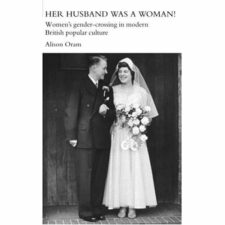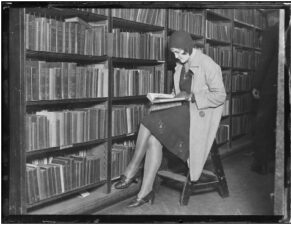Mary Quaile
Early in the 1900s, Mary Quaile arrived with her family in Manchester. They had come from Dublin, and Mary became a stalwart in the labour movement in Manchester. She led a café waitresses’ strike, going on to work as an organizer for the Manchester and Salford Women’s Trades Union Council. Opposing the First World War, she was active in the No Conscription Fellowship. She was a part of the Women’s Movement that split with women (like Emmeline and Christabel Pankhurst) who believed the war effort should be supported and downed their suffragette credentials to do so.
Following the war, Mary Quaile became an organisation with the newly formed TGWU, and in 1924 was elected to the General Council of the TUC. She was an active member and leader of campaigns to increase union membership and like many women on the Left at the time visited the Soviet Union on a trade union delegation. She spoke often at rallies and public meetings, and during the General Strike in May 1926 was seen frequently and heard often speaking at rallies in London, Manchester and other parts of the country.
Returning to Manchester to make it her permanent home once more in the 1930s, she served as Treasurer of the Manchester Trades Council for many years. When she died in 1958, her obituary was published in the Manchester Guardian. In valorizing her life, the obituary observed that Mary Quaile’s ‘determination to get trade unionism for women accepted was often met with jeers, boos, rotten apples, and threats of violence. She spoke at hundreds of factory gate meetings in both the East End of London and Manchester; she never betrayed any sign of fear when faced with hostility. Her warmth and loveable personality won for her many friends in the labour and trade union movement.
In Mary Quaile’s memory and in recognition that conferences and seminars on working class history are ‘often too academic in nature and are failing to engage with a wider non-academic audience, founders of the Mary Quaile Club have, consistent with this view, established the Club to encourage the new generation of political activists who are campaigning on issues close to Mary Quaile’s heart. These include the Bedroom tax, the privatisation of the National Health Service, zero hours contacts, fracking, the slashing of welfare benefits and the imposition of austerity measures which bear most profoundly on those least able to survive them. The Mary Quale Club is designed to provide a meeting place for all who would engage with discussions on history and politics, yet are not presently being reached.
Mary Quaile
Jocelynne A. Scutt – based on material
provided by the Mary Quaile Club (c) January 2014
| Founded in December 2013, the Mary Quaile Club is being launched as a new history and politics discussion group at a public meeting on ‘Ellen Wilkinson and the future of the welfare state’. The Mary Quaile Club’s first meeting is scheduled for 15 February 2014 in Salford. The Club’s aim is to hold regular discussions on working class history and its links with contemporary political issues confronting working people in Tory Britain. |
The discussion group proudly bears the name of trade unionist Mary Quaile, a woman who would not resile from the importance of the struggle for women’s rights, the rights of the working class, and the right of women of the working class to organise, speak out, speak up and be heard.
Important Information:
The first public meeting of the Mary Quaile Club is held on Saturday 15 February 2014, 2pm, at Cornerstones Community Centre, 451 Liverpool Street, Langworthy, Salford M6 5QQ. The theme of the meeting is “What Ever Happened to the Welfare State?”
Seakers: Paula Bartley and Hugh Caffrey
Paula Bartley will discuss the life and politics of Ellen Wilkinson. Paula is the author of Ellen Wilkinson, from Red Suffragist to Government Minister, Pluto Press.
Ellen Wilkinson grew up in Manchester and was an active socialist and suffragist. She was a Manchester City councillor for a short time before becoming a Labour MP for Middlesbrough and later Jarrow. In 1936 she took part in the Jarrow Crusade, a march of the unemployed to London. In 1945 the Labour party won a landslide victory and set up the NHS and welfare State. Ellen became Minister of Education. She died suddenly in 1947. In her speech to the 1946 Labour Party Conference she said:
When I went to the Ministry of Education I had two guiding aims, and they came largely out of my own experience. I was born into a working-class home, and I had to fight my own way through to the University. The first of those guiding principles was to see that no boy or girl is debarred by lack of means … the second one was that we should remove from education those class distinctions which are the negation of democracy.
Hugh Caffrey is Secretary of Greater Manchester Keep our NHS Public, which campaigns against the privatisation of the NHS. He will outline what is happening at the moment and explain what people can do to save the NHS from being taken over by the private sector.
For more information visit http://maryquaileclub.wordpress.com
or email, maryquaileclub@gmail.com






